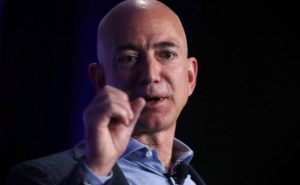
Perplexity, an AI-based “answer engine” wins backing from Jeff Bezos
Jeff Bezos has provided his backing to Perplexity, an AI-based “answer engine” that aims to influence how people find information online.
The San Francisco start-up is wary of the gigantic market share enjoyed by Google when it comes to online search, but it doesn’t intend to compete with the tech giant immediately. Instead, it wants to use artificial intelligence to provide a direct route to things that people want to find.
By doing this instead of providing website links, Perplexity wants to take online search in a new direction, powered by generative AI, and as Perplexity’s CEO Aravind Srinivas stated, “If you can directly answer somebody’s question, nobody needs those 10 blue links.”
They currently have fewer than 40 workers, but their “answer engine” has shown enough potential at its fledgling stage to attract $74 million in investment from Bezos, Institutional Venture Partners, and others, giving the company a value of $520 million.
It isn’t the first challenger to have eyes on the dominant market position enjoyed by Google, and it is very unlikely to be the last. As highlighted by the Wall Street Journal, even “Microsoft itself has struggled for years to dislodge the company’s roughly 90% market share in online search.”
In search of profit and prominence
Srinivas and his colleagues appear to be under no illusions about the extent of the task ahead to gain a meaningful foothold in their market. Still, with the rise of AI, they are positioning themselves to benefit from its advances.
Perplexity had 53 million visits on its website and mobile apps as of November 2023, up from 2.2 million when its services were rolled out in December of the previous year.
Not only does the product need to prosper, but the bottom line needs to dramatically improve. Perplexity isn’t profitable at present, with returns of around $5 million to $10m in revenue from subscriptions annually — it also sells its AI software to other businesses.
As its user figures rise, the company aims to cut its costs while it has not ruled out the introduction of advertising at some point ahead.




